Permanent Residency
All permanent resident cases based on employment at UC San Diego must be submitted through the International Services and Engagement Office (ISEO). Using counsel outside of the university for employment-sponsored permanent residency petitions is NOT allowed. Any legal immigration work that a department wants to sponsor with university funding (please note that "start-up funds" are considered university funds), even for self-petition cases (National Interest Waiver, Extraordinary Ability, and I-485 Adjustment of Status), must be approved through ISEO, with legal work done by an immigration law firm that has a retention agreement on file with the University of California, Office of the President. A researcher self-petitioning and using personal funds for legal immigration work has no restriction on legal services retained.
Permanent Residency Forms: Revised October 30, 2019
Faculty Labor Certification
Immigration Websites
Overview and Eligibility
International faculty and researchers at UC San Diego may be eligible for permanent residence sponsorship through employment under the following conditions:
- The position is permanent* (i.e., intended to continue indefinitely);
- The position is full-time;
- The appointment title qualifies for sponsorship, per institutional policy (see "Supplement 1" of PPM 200-16);
- The employee intends to remain in the position indefinitely; and
- The department is willing to devote considerable staff time and resources to the permanent residence process
*The department chair must be willing to state to the immigration service that the institution intends to employ the Faculty or Scholar indefinitely in that position (e.g. even if the contract is two years).
Employees who are hired in faculty teaching positions through a national recruitment effort will be eligible for permanent residency based on the Labor Certification route; see advertising guidelines (PDF) for possible labor certification.
Employees who have at least 3 years of full‑time teaching and/or research experience and are recognized internationally as outstanding in a specific academic area may qualify for the "Outstanding Professor or Researcher" category and will not need documentation of a national recruitment effort. They will need to substantiate their claim of international prominence with documentation from at least two of the following regulatory categories:
- Documentation of the foreign national's receipt of major prizes or awards for outstanding achievement in the academic field;
- Documentation of the foreign national's membership in associations in the academic field which require outstanding achievements in the academic field;
- Published material in professional publications written by others about the foreign national's work in the academic field. Such material shall include the title, date, and author of the material, and any necessary translation;
- Evidence of the foreign national's participation as the judge of the work of others in the same or an allied academic field;
- Evidence of the foreign national's original scientific or scholarly research contributions to the academic field;
- Evidence of the foreign national's authorship of scholarly books or articles (in scholarly journals with international circulation) in the academic field; or
- Comparable evidence to support the foreign national is internationally recognized as outstanding.
Note that the process is
Fast Track Permanent Residency for Tenured or Tenure-Track Faculty
Faculty who desire to obtain permanent residence as quickly as possible should file through the Outstanding Professor or Researcher pathway; possible reasons may include:
- Ability to apply more quickly for grant funding restricted to U.S. citizens and permanent residents
Ability of dependent H-4 spouse to obtain work authorization more quicklyAbility for those internationals (Indian and Chinese nationals) for whom the Visa Bulletin is backlogged to adjust to permanent residency more quickly
Please contact Sandra Vargas Tinoco with any questions.
Faculty Labor Certification
Labor Certification process and timeline:
- Faculty, department representative, and ISEO staff meet to submit request/data form, discuss timeline, and set expectations, as soon as possible after hiring (and completion of H-1B petition; please email Sandra Vargas to set up an appointment)
- Department posts Labor Certification notice for 10 consecutive business days and
afterwards forwards it and the recruitment report to ISEO - ISEO prepares labor certification for filing immediately after the 30-day wait period following the 10-day posting notice
- US Department of Labor (USDOL) certifies the labor certification submission (approximately 5-7 months but always varying, often considerably)
- ISEO files the I-140 Immigrant Petition with US Citizenship and Immigration Services (USCIS) and files the I-485 Adjustment of Status petition (simultaneously or later, depending on faculty wishes) for
faculty member and any spouse/dependents - USCIS issues the EAD (employment authorization document for faculty/spouse) within approximately 90 days of I-485 filing; employment authorization is valid until Permanent Residency is approved or denied
- The department must request the checks (USCIS filing fees) from Integrated Procure-to-Pay Solutions/MyPayments via MyPayments. All checks must be issued separately for each fee.
- Information on ISEO online recharge.
- Labor Certification Cost:
Description |
ISEO Recharge(effective 09/01/23) |
USCIS Checks |
|
Labor Certification |
$3,000 |
- |
|
Immigrant Petition: I-140 |
$3,000 |
$715 |
|
USCIS Premium Processing |
- |
$2,805 |
|
All USCIS checks must be made out to the "U.S. Department of Homeland Security" |
||
Other Permanent Residency Options Through UC San Diego
All employer sponsored EB-1b Outstanding Professor/Researcher petitions MUST go through ISEO per institutional policy. Timing of the process is impossible to predict, as it will vary considerably based on the scholar’s ability to gather documentation and solicit letters from experts, the waiting period for a visa number to become available, and the U.S. Citizenship and Immigration Services (USCIS) processing schedules.
All permanent resident cases based on employment at UC San Diego MUST be submitted through the International Services and Engagement Office (ISEO). Using counsel outside of the university for employment-sponsored permanent residency petitions is NOT allowed. Any legal immigration work that a department wants to sponsor with university funding (please note that "start-up funds" are considered university funds), even for self-petition cases (National Interest Waiver, Extraordinary Ability, and I-485 Adjustment of Status), must be approved through ISEO, with legal work done by an immigration law firm that has a retention agreement on file with the University of California, Office of the President. A researcher self-petitioning and using personal funds for legal immigration work has no restriction on legal services retained. For more information, contact ifsooutsource@ucsd.edu.
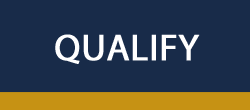
Institutional requirements:
- PPM 200-16 Supplement 1: Appointment title must be eligible ("Y") under PR sponsorship column.
- Federal regulatory requirements
![]()
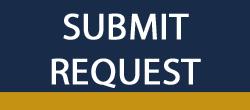
Department must email ifsooutsource@ucsd.edu requesting permanent residency processing be initiated. The email should include the Faculty or Scholar's CV and Google Scholar citation count (PDF or URL to public page). If the Faculty or Scholar is determined qualified, the department will be instructed to complete ISEO's online recharge form with department account information, and the option to select from one of the firms on retainer with UCOP.
![]()
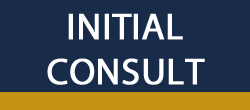
ISEO will reach out to the Attorney on retainer with UCOP, the scholar, and the department, to schedule the initial telephone consult.
![]()
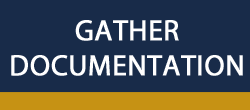
Faculty or Scholar will gather documentation supporting evidentiary categories, and work with attorney firm and expert letter writers in soliciting letters from experts.
![]()
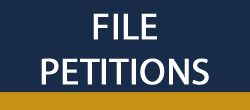
Attorney firm will file the I-140 Immigrant Petition and file the I-485 Adjustment of Status petition, when visa numbers are current (see Visa Bulletin).
Self-petitioning
If you do not qualify for employer-sponsorship of permanent residence, it may be possible to self-petition in either the "Extraordinary Ability" or "National Interest Waiver" categories. We would recommend you consult with an immigration attorney for either of these processes; please see legal matters for resources to select an immigration attorney.
If your department is interested in paying an immigration attorney's fees for you to self-petition, then the petition must be done through an attorney on retainer with the University of California Office of the President for UC San Diego; for more information, contact ifsooutsource@ucsd.edu.
I-485 Supplement J for Job Portability (I-485j)
USCIS has created a new form, I-485 Supplement J, which in some cases is required for U.S. permanent residence. Supplement J for job portability is required for scholars with a pending I-485 Adjustment of Status to permanent residency, based on an approved
To request job portability, USCIS requires that the new job offer
If you have any questions or would like to request UC San Diego to complete an I-485 Supplement J on your behalf, contact ifsopr@ucsd.edu.
Workshops for Scholars and Students
Permanent Residency Overview: Process and Pathways (Intro)
The workshop will introduce the main pathways for employment-based permanent residence (Outstanding Professor or Researcher, Labor Certification for Advanced Degree Holders, National Interest Waiver, and Extraordinary Ability), discuss the interrelationship of the I-140 immigrant and I-485 Adjustment of Status petitions, and consider the timing of petition submissions relative to the Visa Bulletin and USCIS processing times. This workshop is intended for researchers who are beginning to think about permanent residence through employment as an option for the future.
Schedule
| Date | Time | RSVP (for Virtual Meeting link) |
|---|---|---|
| 04/22/2024 | 12pm (noon) - 1pm | Register Here |
| 06/24/2024 | 12pm (noon) - 1pm | Register Here |